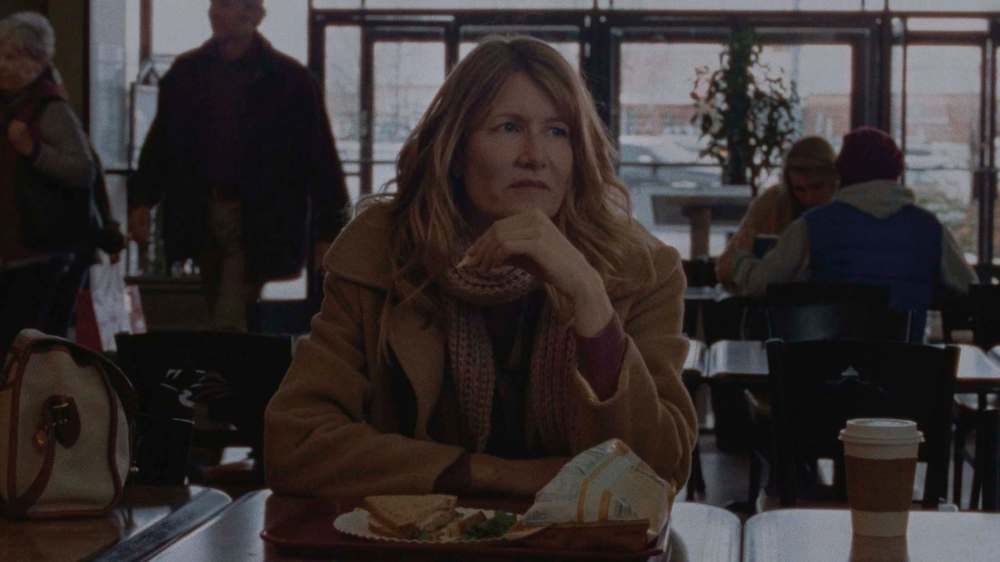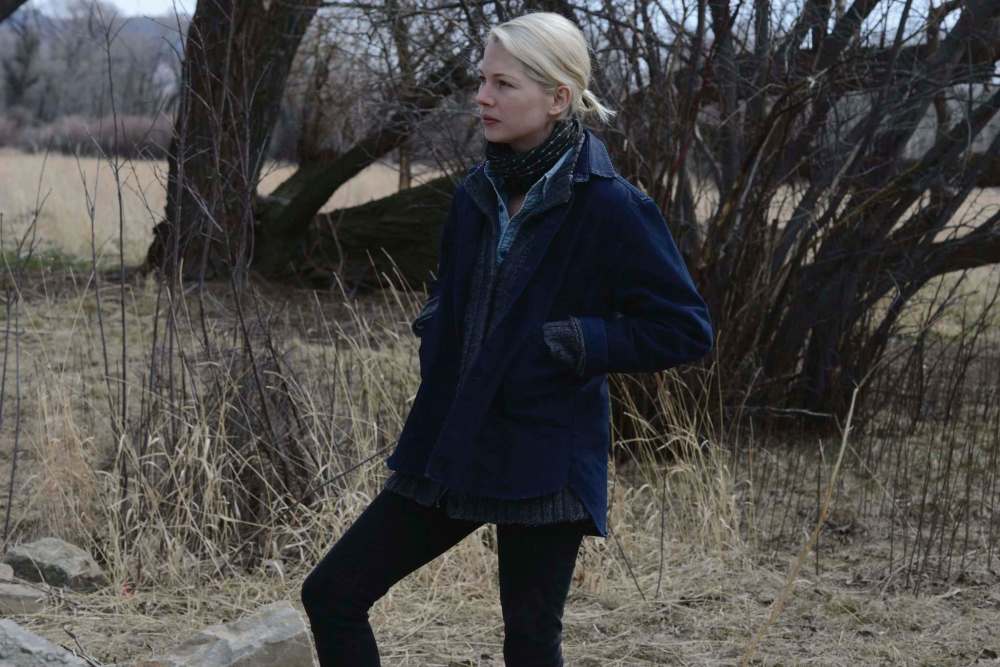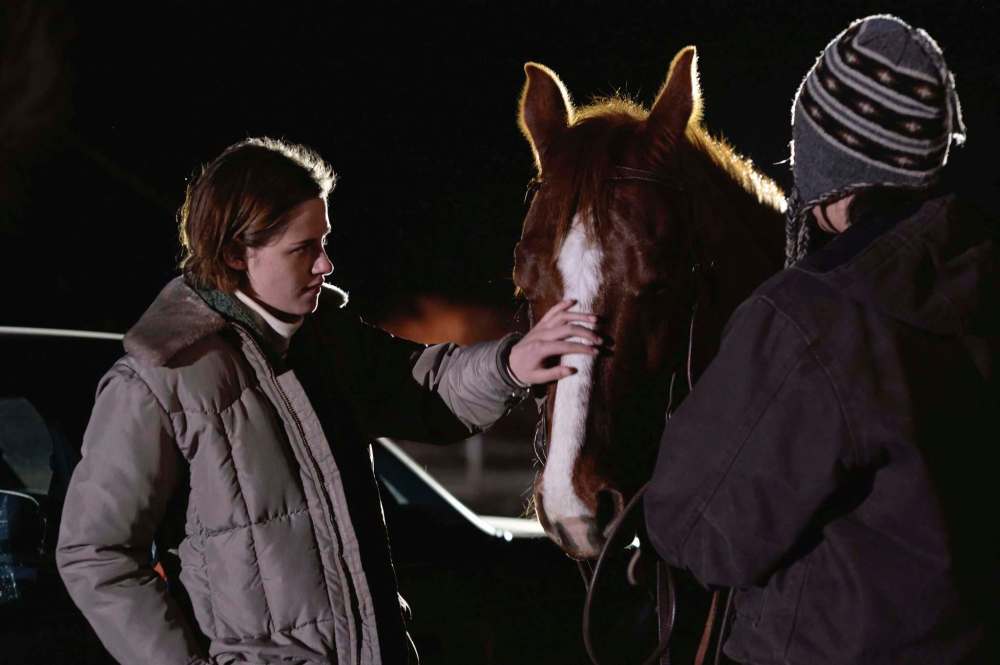A different kind of feminism — stoic, not showy
Director returns with another quiet character study
Advertisement
Read this article for free:
or
Already have an account? Log in here »
To continue reading, please subscribe:
Monthly Digital Subscription
$0 for the first 4 weeks*
- Enjoy unlimited reading on winnipegfreepress.com
- Read the E-Edition, our digital replica newspaper
- Access News Break, our award-winning app
- Play interactive puzzles
*No charge for 4 weeks then price increases to the regular rate of $19.95 plus GST every four weeks. Offer available to new and qualified returning subscribers only. Cancel any time.
Monthly Digital Subscription
$4.99/week*
- Enjoy unlimited reading on winnipegfreepress.com
- Read the E-Edition, our digital replica newspaper
- Access News Break, our award-winning app
- Play interactive puzzles
*Billed as $19.95 plus GST every four weeks. Cancel any time.
To continue reading, please subscribe:
Add Free Press access to your Brandon Sun subscription for only an additional
$1 for the first 4 weeks*
*Your next subscription payment will increase by $1.00 and you will be charged $16.99 plus GST for four weeks. After four weeks, your payment will increase to $23.99 plus GST every four weeks.
Read unlimited articles for free today:
or
Already have an account? Log in here »
Hey there, time traveller!
This article was published 11/08/2017 (3074 days ago), so information in it may no longer be current.
Because Kelly Reichardt is such a resolute minimalist, critics often define her work by what she doesn’t do. The American indie director doesn’t offer conventional narratives or obvious conclusions. She avoids big emotional climaxes. She remains stubbornly averse to exposition.
It’s just as important, though, to talk about what Reichardt (Old Joy, Wendy and Lucy, Meek’s Cutoff) does do. She excels at close, compassionate observation, often of ordinary and overlooked people for whom economic anxiety and social isolation are never far away.
Reichardt possesses a patient and unhurried sense of time and a sharply specific sense of place. She gives actors the space to craft characters from small gestures, sparse dialogue and incremental epiphanies. We don’t necessarily learn a lot about these people — their backgrounds, motivations and desires often remain discreetly unstated — but we recognize them immediately.
Reichardt’s work often focuses on the lives of women, especially women whose stories get pushed to the edges in mainstream cinema. Her feminism isn’t of the showy “You go, girl” variety, though. In this quietly revelatory story of four women in rural and small-town Montana, Reichardt suggests a stoic get-on-with-things kind of feminism, where female strength is less a big political statement and more an everyday necessity.
Adapted from short stories by Maile Meloy, Certain Women is loosely structured, with three separate narratives circling around its characters, who are played by a quiet powerhouse cast that includes Kristen Stewart, Laura Dern, Reichardt regular Michelle Williams and newcomer Lily Gladstone. Their lives overlap but don’t necessarily interconnect.

What links these women is their environment. Reichardt’s view of Montana can be almost painterly, with big skies, long vistas and changeable, sometimes threatening weather. Music is rare in this film.
Instead we have the background of talk radio (“If you don’t have to drive today, don’t drive,”) and the plaintive sound of distant trains.
The first story focuses on Laura Dern, who is having a well-deserved moment right now, with Big Little Lies and the Twin Peaks reboot. She plays Laura, a lawyer seemingly stuck in a stalled-out love affair and frustrating work. One of her clients, beautifully played by Jared Harris, finally accepts what Laura’s been telling him for months only when a male lawyer weighs in with the same opinion.
Laura finds herself facing a hostage situation, which in true Reichardtian way, is deliberately underplayed. There is real tension here but also humour and humanity. (The hostage-taker asks the police for US$3,000 and a one-hour head start, a touchingly modest and trusting demand.)
Michelle Williams, who also featured in Meek’s Cutoff, is Gina, a middle-class urbanite building a house in the country, who faces a practical and ethical dilemma trying to source local sandstone blocks — for “authenticity” — from an elderly neighbour suffering from borderline dementia.
Gina’s larger problem is that, along with being her family’s chief sandstone block negotiator, she has been slated as the organizer, the manager, the one who gets things done, the no-fun-nik. Her slightly feckless husband (James LeGros) and unhappy teenage daughter both need her and vaguely resent her.

In the final segment, Beth (Kristen Stewart), a young lawyer, drives four hours to teach a night class in education law to a group of aggrieved teachers. (“Can teachers demand reserved parking?” one asks.)
A solitary Indigenous ranch hand (Lily Gladstone), who remains unnamed but becomes completely indelible, wanders into the class by accident and remains because she is falling in love.
Stewart is intriguing, that edgy self-containment (recently seen in Personal Shopper) counterpointed nicely by Gladstone, whose face is painfully unguarded, her emotions living just beneath her skin. Stewart gets main billing here — understandable, considering her star power — but this is really Gladstone’s story.
Moving through these three loosely linked narratives, revisited with brief codas at the end, can feel a mite frustrating at first, particularly in contrast to the sustained, slow-burn concentration of Reichardt’s other works.
But for film fans willing to give themselves over to these elliptical, understated sequences, there’s an unexpected resonance that builds and then lingers, kind of like those lonely late-night train whistles.
alison.gillmor@freepress.mb.ca


Studying at the University of Winnipeg and later Toronto’s York University, Alison Gillmor planned to become an art historian. She ended up catching the journalism bug when she started as visual arts reviewer at the Winnipeg Free Press in 1992.
Our newsroom depends on a growing audience of readers to power our journalism. If you are not a paid reader, please consider becoming a subscriber.
Our newsroom depends on its audience of readers to power our journalism. Thank you for your support.

